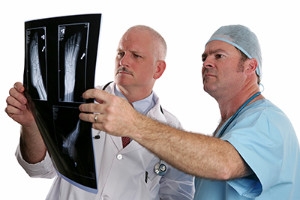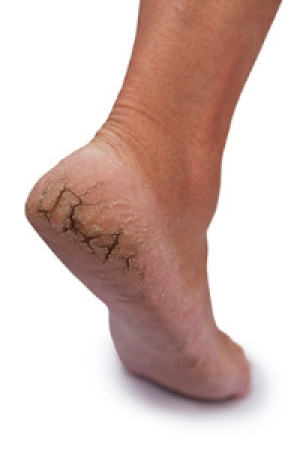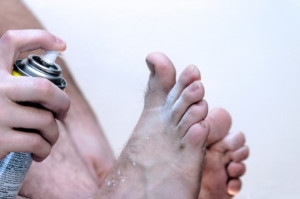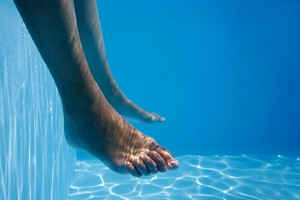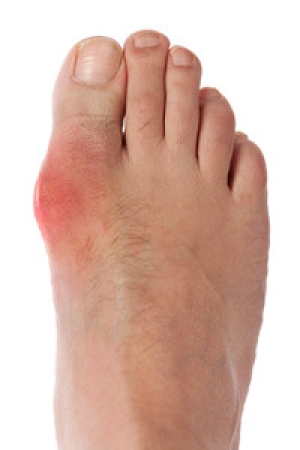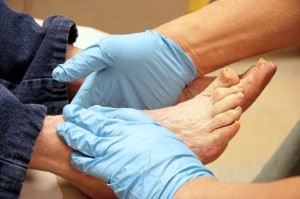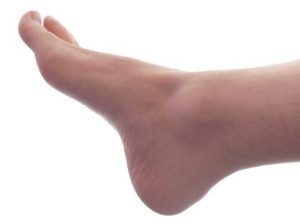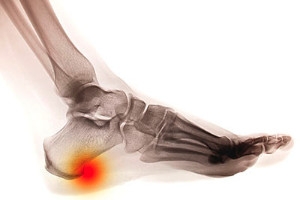
Raphael Guerreiro in Recovery from Foot Surgery
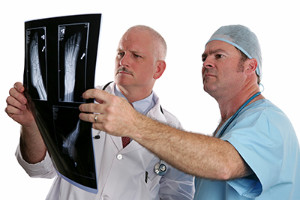 Raphael Guerreiro, defender for Borussia Dortmund, is expected to be sidelined for four months after undergoing foot surgery. Guerreiro suffered the injury while playing the Confederations Cup against the Russian team. At first, it was believed that Guerreiro had only suffered a bruised foot, but they later learned that this was not the case. The defender scored 9 goals in 35 games last season with Borussia, but unfortunately will not be able to return to his team until around November due to the surgery.
Raphael Guerreiro, defender for Borussia Dortmund, is expected to be sidelined for four months after undergoing foot surgery. Guerreiro suffered the injury while playing the Confederations Cup against the Russian team. At first, it was believed that Guerreiro had only suffered a bruised foot, but they later learned that this was not the case. The defender scored 9 goals in 35 games last season with Borussia, but unfortunately will not be able to return to his team until around November due to the surgery.
Foot surgery is sometimes necessary to treat a foot ailment. To learn more, contact Dr. Ronald Sheppard of Warren-Watchung Podiatry Center. Our doctor will assist you with all of your foot and ankle needs.
When Is Surgery Necessary?
Foot and ankle surgery is generally reserved for cases in which less invasive, conservative procedures have failed to alleviate the problem. Some of the cases in which surgery may be necessary include:
- Removing foot deformities like bunions and bone spurs
- Severe arthritis that has caused bone issues
- Cosmetic reconstruction
What Types of Surgery Are There?
The type of surgery you receive will depend on the nature of the problem you have. Some of the possible surgeries include:
- Bunionectomy for painful bunions
- Surgical fusion for realignment of bones
- Neuropathy decompression surgery to treat nerve damage
Benefits of Surgery
Although surgery is usually a last resort, it can provide more complete pain relief compared to non-surgical methods and may allow you to finally resume full activity.
Surgical techniques have also become increasingly sophisticated. Techniques like endoscopic surgery allow for smaller incisions and faster recovery times.
If you have any questions please feel free to contact one of our offices located in Marlboro and Watchung, NJ . We offer the newest diagnostic and treatment technologies for all your foot and ankle needs.
Preventing Cracked Heels
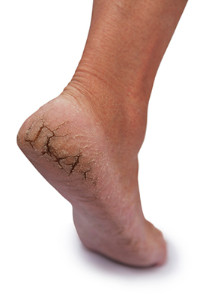 Having cracked heels are a common foot condition that tends to appear during the summer months. This is mainly due to the increased flip-flop and sandal usage in warmer weather. In regards to cracked feet, studies have shown that “71 percent of women regularly suffer, while only 34 per cent of men are happy with the condition of their feet.” Cracked heels are often the result of a lack of elasticity in the skin, but there are ways you can avoid developing them. One of the most efficient ways to decrease your chances of getting cracked feet is to correct the way you walk. People who walk while putting a lot of pressure on their heels are more likely to develop cracks. Another simple way to prevent cracked heels is to moisturize. Foot balms can be used to prevent the skin on your feet from drying out.
Having cracked heels are a common foot condition that tends to appear during the summer months. This is mainly due to the increased flip-flop and sandal usage in warmer weather. In regards to cracked feet, studies have shown that “71 percent of women regularly suffer, while only 34 per cent of men are happy with the condition of their feet.” Cracked heels are often the result of a lack of elasticity in the skin, but there are ways you can avoid developing them. One of the most efficient ways to decrease your chances of getting cracked feet is to correct the way you walk. People who walk while putting a lot of pressure on their heels are more likely to develop cracks. Another simple way to prevent cracked heels is to moisturize. Foot balms can be used to prevent the skin on your feet from drying out.
Cracked heels are unsightly and can cause further damage to your shoes and feet. If you have any concerns, contact Dr. Ronald Sheppard from Warren-Watchung Podiatry Center. Our doctor can provide the care you need to keep you pain-free and on your feet.
Cracked Heels
Cracked heels appear unappealing and can make it harder for you walk around in sandals. Aside from looking unpleasant, cracked heels can also tear stockings, socks, and wear out your shoes. There are several methods to help restore a cracked heel and prevent further damage.
How Do You Get Them?
Dry skin is the number one culprit in creating cracked heels. Many athletes, walkers, joggers, and even swimmers suffer from cracked heels. Age and skin oil production play a role to getting cracked heels as well.
Promote Healing
Over the counter medicines can help, especially for those that need instant relief or who suffer from chronic dry feet.
Wear Socks – Wearing socks with medicated creams helps lock in moisture.
Moisturizers – Applying both day and night will help alleviate dryness which causes cracking.
Pumice Stones – These exfoliate and remove dead skin, which allows for smoother moisturizer application and better absorption into the skin.
Change in Diet
Eating healthy with a well-balanced diet will give the skin a fresh and radiant look. Your body responds to the kinds of food you ingest. Omega-3 fatty acids and zinc supplements can also revitalize skin tissue.
Most importantly, seek professional help if unsure how to proceed in treating cracked heels. A podiatrist will help you with any questions or information needed.
If you have any questions, please feel free to contact one of our offices located in Marlboro and Watchung, NJ . We offer the newest diagnostic and treatment technologies for all your foot care needs.
Tips for Dealing with Athlete’s Foot
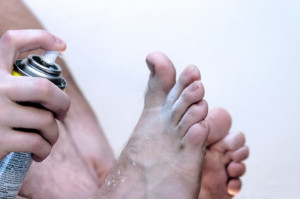 Athlete’s foot is a contagious fungal infection that can spread to the toenails and hands. The condition itself may be hard to cure, and it can be caught by direct contact with someone who has it or by touching surfaces that have been contaminated with it. The fungus has been found to thrive in damp environments such as showers, locker room floors, and around swimming pools. If you want to avoid getting athlete’s foot, you should wash your feet with soap and water and dry them thoroughly, especially between the toes. You also should avoid sharing your socks with other people since this can help spread the fungus. Lastly, be sure to change your socks when your feet get sweaty, and wear shoes that are made from a breathable material.
Athlete’s foot is a contagious fungal infection that can spread to the toenails and hands. The condition itself may be hard to cure, and it can be caught by direct contact with someone who has it or by touching surfaces that have been contaminated with it. The fungus has been found to thrive in damp environments such as showers, locker room floors, and around swimming pools. If you want to avoid getting athlete’s foot, you should wash your feet with soap and water and dry them thoroughly, especially between the toes. You also should avoid sharing your socks with other people since this can help spread the fungus. Lastly, be sure to change your socks when your feet get sweaty, and wear shoes that are made from a breathable material.
Athlete’s foot is an inconvenient condition that can be easily reduced with the proper treatment. If you have any concerns about your feet and ankles, contact Dr. Ronald Sheppard from Warren-Watchung Podiatry Center. Our doctor will treat your foot and ankle needs.
Athlete’s Foot: The Sole Story
Athlete's foot, also known as tinea pedis, can be an extremely contagious foot infection. It is commonly contracted in public changing areas and bathrooms, dormitory style living quarters, around locker rooms and public swimming pools, or anywhere your feet often come into contact with other people.
Solutions to Combat Athlete’s Foot
- Hydrate your feet by using lotion
- Exfoliate
- Buff off nails
- Use of anti-fungal products
- Examine your feet and visit your doctor if any suspicious blisters or cuts develop
Athlete’s foot can cause many irritating symptoms such as dry and flaking skin, itching, and redness. Some more severe symptoms can include bleeding and cracked skin, intense itching and burning, and even pain when walking. In the worst cases, Athlete’s foot can cause blistering as well. Speak to your podiatrist for a better understanding of the different causes of Athlete’s foot, as well as help in determining which treatment options are best for you.
If you have any questions please feel free to contact one of our offices located in Marlboro and Watchung, NJ . We offer the newest diagnostic and treatment technologies for all your foot and ankle needs.
Summertime Foot Care Tips
 Now that the warm weather is starting to approach us, you may be tempted to start wearing open toed shoes. However, it is important that you take good care of your feet so that you can be confident while wearing your favorite sandals this summer. Getting rid of the dead skin that may have built up during the winter months should be one of the first steps you take toward improving your foot health. This can be done via the natural route by using sea salt or grape seeds as exfoliants. If you still have dead skin on your feet after exfoliating, you may want to seek the assistance of a podiatrist for treatment. Another tip to have healthy feet is to make sure your toenails are cut straight across, instead of in a rounded shape. You should try to make an effort to trim your toenails every two to three weeks.
Now that the warm weather is starting to approach us, you may be tempted to start wearing open toed shoes. However, it is important that you take good care of your feet so that you can be confident while wearing your favorite sandals this summer. Getting rid of the dead skin that may have built up during the winter months should be one of the first steps you take toward improving your foot health. This can be done via the natural route by using sea salt or grape seeds as exfoliants. If you still have dead skin on your feet after exfoliating, you may want to seek the assistance of a podiatrist for treatment. Another tip to have healthy feet is to make sure your toenails are cut straight across, instead of in a rounded shape. You should try to make an effort to trim your toenails every two to three weeks.
Everyday foot care is very important to prevent infection and other foot ailments. If you need your feet checked, contact Dr. Ronald Sheppard from Warren-Watchung Podiatry Center. Our doctor can provide the care you need to keep you pain-free and on your feet.
Everyday Foot Care
Often, people take care of their bodies, face and hair more so than they do for their feet. But the feet are a very important aspect of our bodies, and one that we should pay more attention to. Without our feet, we would not be able to perform most daily tasks.
It is best to check your feet regularly to make sure there are no new bruises or cuts that you may not have noticed before. For dry feet, moisturizer can easily be a remedy and can be applied as often as necessary to the affected areas. Wearing shoes that fit well can also help you maintain good foot health, as well as making it easier to walk and do daily activities without the stress or pain of ill-fitting shoes, high heels, or even flip flops. Wearing clean socks with closed shoes is important to ensure that sweat and bacteria do not accumulate within the shoe. Clean socks help to prevent Athlete’s foot, fungi problems, bad odors, and can absorb sweat.
If you have any questions please feel free to contact one of our offices located in Marlboro and Watchung, NJ . We offer the newest diagnostic and treatment technologies for all your foot and ankle needs.
What is Gout?
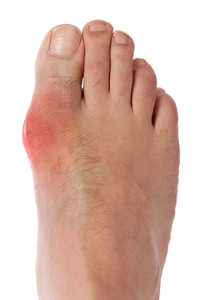 Gout is one of the most commonly recorded medical conditions throughout the world’s history. This condition is caused by a buildup of uric acid in the joints. Uric acid comes from purines, which are found in meat products. The body can’t always get rid of all the uric acid, and this results in the formation of crystals which accumulate in the joints. Gout usually occurs near the big toe, and its symptoms include pain, swelling, tenderness, and reddish discoloration. Unfortunately, the pain associated with gout could last for days. You are more likely to have gout if you have high blood pressure, a heavy alcohol intake, or if you take diuretics. Be sure to watch your diet, and consult with a meddical professional.
Gout is one of the most commonly recorded medical conditions throughout the world’s history. This condition is caused by a buildup of uric acid in the joints. Uric acid comes from purines, which are found in meat products. The body can’t always get rid of all the uric acid, and this results in the formation of crystals which accumulate in the joints. Gout usually occurs near the big toe, and its symptoms include pain, swelling, tenderness, and reddish discoloration. Unfortunately, the pain associated with gout could last for days. You are more likely to have gout if you have high blood pressure, a heavy alcohol intake, or if you take diuretics. Be sure to watch your diet, and consult with a meddical professional.
Gout is a foot condition that requires certain treatment and care. If you are seeking treatment, contact Dr. Ronald Sheppard from Warren-Watchung Podiatry Center. Our doctor will treat your foot and ankle needs.
What Is Gout?
Gout is a type of arthritis caused by a buildup of uric acid in the bloodstream. It often develops in the foot, especially the big toe area, although it can manifest in other parts of the body as well. Gout can make walking and standing very painful and is especially common in diabetics and the obese.
People typically get gout because of a poor diet. Genetic predisposition is also a factor. The children of parents who have had gout frequently have a chance of developing it themselves.
Gout can easily be identified by redness and inflammation of the big toe and the surrounding areas of the foot. Other symptoms include extreme fatigue, joint pain, and running high fevers. Sometimes corticosteroid drugs can be prescribed to treat gout, but the best way to combat this disease is to get more exercise and eat a better diet.
If you have any questions please feel free to contact one of our offices located in Marlboro and Watchung, NJ . We offer the newest diagnostic and treatment technologies for all your foot and ankle needs.
The Role of Podiatrists
 Podiatrists are doctors that specialize in and specifically treat all things related to the feet. Podiatrists are particularly important for maintaining regular foot care, as “three out of four Americans experience serious foot problems in their lifetimes.” Foot ailments should never be overlooked, as they can be an indicator of more serious problems like diabetes. An important part of proper foot care, as recommended by podiatrists, is wearing properly-fitting shoes. Improperly-fitting shoes not only are uncomfortable, but can impact your foot structure and eventually lead to long-term foot problems.
Podiatrists are doctors that specialize in and specifically treat all things related to the feet. Podiatrists are particularly important for maintaining regular foot care, as “three out of four Americans experience serious foot problems in their lifetimes.” Foot ailments should never be overlooked, as they can be an indicator of more serious problems like diabetes. An important part of proper foot care, as recommended by podiatrists, is wearing properly-fitting shoes. Improperly-fitting shoes not only are uncomfortable, but can impact your foot structure and eventually lead to long-term foot problems.
If you are experiencing pain in the feet or ankles, don’t join the stubborn majority refusing treatment. Feel free to contact Dr. Ronald Sheppard from Warren-Watchung Podiatry Center. Our doctor can provide the care you need to keep you pain-free and on your feet.
What Is a Podiatrist?
Someone would seek the care of a podiatrist if they have suffered a foot injury or have common foot ailments such as heal spurs, bunions, arch problems, deformities, ingrown toenails, corns, foot and ankle problems, etc.
Podiatric Treatment
A podiatrist will treat the problematic areas of the feet, ankle or lower leg by prescribing the following:
- Physical therapy
- Drugs
- Orthotic inserts or soles
- Surgery on lower extremity fractures
A common podiatric procedure a podiatrist will use is a scanner or force plate which will allow the podiatrist to know the designs of orthotics. Patients are then told to follow a series of tasks to complete the treatment. The computer will scan the foot a see which areas show weight distribution and pressure points. The podiatrist will read the analysis and then determine which treatment plans are available.
If you have any questions please feel free to contact one of our offices located in Marlboro and Watchung, NJ . We offer the newest diagnostic and treatment technologies for all your foot and ankle needs.
Effects of Diabetes on the Feet
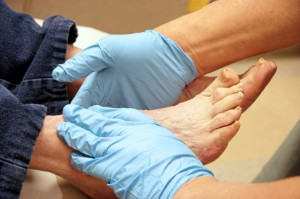 For those who have been diagnosed with diabetes, or those with family members who have diabetes, taking care of your feet is something that should be taken very seriously. Because of the lack of circulation in the feet and legs, numbness or loss of feeling can occur. This could prevent detection of problems such as an ulcer. That, coupled with inordinately slow healing, can cause infections to persist, spread, and even lead to amputation. Make sure to look out for signs of foot problems. If you have numbness or loss of feeling, sores, or any type of slow-healing wound, see a doctor immediately.
For those who have been diagnosed with diabetes, or those with family members who have diabetes, taking care of your feet is something that should be taken very seriously. Because of the lack of circulation in the feet and legs, numbness or loss of feeling can occur. This could prevent detection of problems such as an ulcer. That, coupled with inordinately slow healing, can cause infections to persist, spread, and even lead to amputation. Make sure to look out for signs of foot problems. If you have numbness or loss of feeling, sores, or any type of slow-healing wound, see a doctor immediately.
Diabetic foot care is important in preventing foot ailments such as ulcers. If you are suffering from diabetes or have any other concerns about your feet, contact Dr. Ronald Sheppard from Warren-Watchung Podiatry Center. Our doctor can provide the care you need to keep you pain-free and on your feet.
Diabetic Foot Care
Diabetes affects millions of people every year. The condition can damage blood vessels in many parts of the body, especially the feet. Because of this, taking care of your feet is essential if you have diabetes, and having a podiatrist help monitor your foot health is highly recommended.
The Importance of Caring for Your Feet
- Routinely inspect your feet for bruises or sores.
- Wear socks that fit your feet comfortably.
- Wear comfortable shoes that provide adequate support.
Patients with diabetes should have their doctor monitor their blood levels, as blood sugar levels play such a huge role in diabetic care. Monitoring these levels on a regular basis is highly advised.
It is always best to inform your healthcare professional of any concerns you may have regarding your feet, especially for diabetic patients. Early treatment and routine foot examinations are keys to maintaining proper health, especially because severe complications can arise if proper treatment is not applied.
If you have any questions please feel free to contact one of our offices located in Marlboro and Watchung, NJ . We offer the newest diagnostic and treatment technologies for all your foot and ankle needs.
Anxiety and Depression May Contribute to Hyperhidrosis
Hyperhidrosis is identified as a medical condition which leads to overactive sweat glands, also associated with higher rates of anxiety and even depression in those who are affected. According to a study by the American Academy of Dermatology (AAD), “21 percent of people with hyperhidrosis had anxiety, and 27 percent of people with this ailment had depression.” Hyperhidrosis can occur regardless of factors such as temperature, and can occur in any region of our body. However, in most cases it typically affects the feet, hands, and underarms. Nearly 3 percent of the population is afflicted by this condition.
If you are suffering from hyperhidrosis contact Dr. Ronald Sheppard of Warren-Watchung Podiatry Center. Our doctor can provide the care you need to attend to all of your foot and ankle needs.
Hyperhidrosis of the Feet
Hyperhidrosis is a rare disorder that can cause people to have excessive sweating of their feet. This can usually occur all on its own without rigorous activity involved. People who suffer from hyperhidrosis may also experience sweaty palms.
Although it is said that sweating is a healthy process meant to cool down the body temperature and to maintain a proper internal temperature, hyperhidrosis may prove to be a huge hindrance on a person’s everyday life.
Plantar hyperhidrosis is considered to be the main form of hyperhidrosis. Secondary hyperhidrosis can refer to sweating that occurs in areas other than the feet or hands and armpits. Often this may be a sign of it being related to another medical condition such as menopause, hyperthyroidism and even Parkinson’s disease.
In order to alleviate this condition, it is important to see your doctor so that they may prescribe the necessary medications so that you can begin to live a normal life again. If this is left untreated, it is said that it will persist throughout an individual’s life.
A last resort approach would be surgery, but it is best to speak with your doctor to find out what may be the best treatment for you.
If you have any questions please feel free to contact one of our offices located in Marlboro and Watchung, NJ . We offer the newest diagnostic and treatment technologies for all your foot and ankle needs.
Risk factors for heel spurs
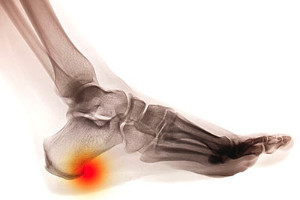 Heel spurs are one of several conditions that can cause heel pain in the feet. A heel spur is an outgrowth of the heel bone that is pointed. Heel spurs can develop at the back of the heel, under the heel, or beneath the sole of the foot. The growths themselves are a result of calcium deposits that develop over a few months. Risk factors for the condition include walking gait abnormalities, running or jogging, poorly fitted shoes lacking support, being overweight, old age, diabetes, standing for long periods of time, frequent short bursts of physical activity, and having either flat feet or high arches.
Heel spurs are one of several conditions that can cause heel pain in the feet. A heel spur is an outgrowth of the heel bone that is pointed. Heel spurs can develop at the back of the heel, under the heel, or beneath the sole of the foot. The growths themselves are a result of calcium deposits that develop over a few months. Risk factors for the condition include walking gait abnormalities, running or jogging, poorly fitted shoes lacking support, being overweight, old age, diabetes, standing for long periods of time, frequent short bursts of physical activity, and having either flat feet or high arches.
Heel spurs can be incredibly painful and sometimes may make you unable to participate in physical activities. To get medical care for your heel spurs, contact Dr. Ronald Sheppard from Warren-Watchung Podiatry Center. Our doctor will do everything possible to treat your condition.
Heels Spurs
Heel spurs are formed by calcium deposits on the back of the foot where the heel is. This can also be caused by small fragments of bone breaking off one section of the foot, attaching onto the back of the foot. Heel spurs can also be bone growth on the back of the foot and may grow in the direction of the arch of the foot.
Older individuals usually suffer from heel spurs and pain sometimes intensifies with age. One of the main condition's spurs are related to is plantar fasciitis.
Pain
The pain associated with spurs is often because of weight placed on the feet. When someone is walking, their entire weight is concentrated on the feet. Bone spurs then have the tendency to affect other bones and tissues around the foot. As the pain continues, the feet will become tender and sensitive over time.
Treatments
There are many ways to treat heel spurs. If one is suffering from heel spurs in conjunction with pain, there are several methods for healing. Medication, surgery, and herbal care are some options.
If you have any questions feel free to contact one of our offices located in Marlboro and Watchung, NJ . We offer the latest in diagnostic and treatment technology to meet your needs.
Systemic Diseases of the Foot
There are several systemic diseases, or diseases that affect the whole body, that either display symptoms in the feet or affect the health of the feet. Common systemic diseases that affect the overall health of the feet, and the patient’s ability to walk comfortably, include gout, diabetes mellitus, neurological disorders, and arthritis, among others.
In gout, which is caused by an excessive buildup of uric acid in the body, the most common symptoms of pain, inflammation, and redness occur at the metatarsal/phalangeal joint at the base of the big toe. Any excess levels of uric acid crystallize and are deposited in tendons, joints, and surrounding bone and muscle tissue. Gout is commonly treated with NSAIDs to relieve pain and inflammation and other drugs to lower uric acid levels in the body. Gout most commonly affects those who are overweight, have low protein diets and lead a more sedentary lifestyle.
Diabetes mellitus is an increase in the level of blood sugar in which the body cannot counteract with naturally occurring insulin in the body. The three types of diabetes, Type I, Type II and Gestational Diabetes, are all signs the body is either not producing enough insulin or is not efficiently using the insulin that is produced. Gestational diabetes only affects women who are pregnant and have never, prior to pregnancy, exhibited symptoms of the disease.
There are two main issues that affect the feet that are commonly caused by diabetes. They include diabetic neuropathy and peripheral vascular disease. Diabetic neuropathy can lead to damaged nerves and affect the feet through numbness and loss of sensation. Peripheral vascular disease restricts the flow of blood to the foot and can, in extreme cases, lead to the necessity of amputating the foot. Peripheral issues that are caused by diabetes and can affect the foot include athlete’s foot, nail infections, corns, blisters, bunions, severe dry skin, plantar warts and ingrown toenails. These can all be attributed to the decrease of blood flow to the foot.
Neurological disorders and rheumatoid arthritis can also have severe impact on the health of the feet. Neurological disorders can affect the nerves in the main structure of the foot and cause loss of sensation and possible decreased muscle response. Rheumatoid arthritis can affect the bones and joint structures of the foot, making it impossible to walk normally without serious pain.
All systemic diseases that affect the foot can effectively be treated to minimize joint and muscle damage if they are diagnosed early and treated with medication and lifestyle therapy. Diabetes patients must monitor their blood sugar levels and work with their physician to keep their levels as close to normal as possible. Rheumatoid arthritis patients should work with their physician to ensure the proper medications are being taken to reduce the amount of damage to the joints of the body.
